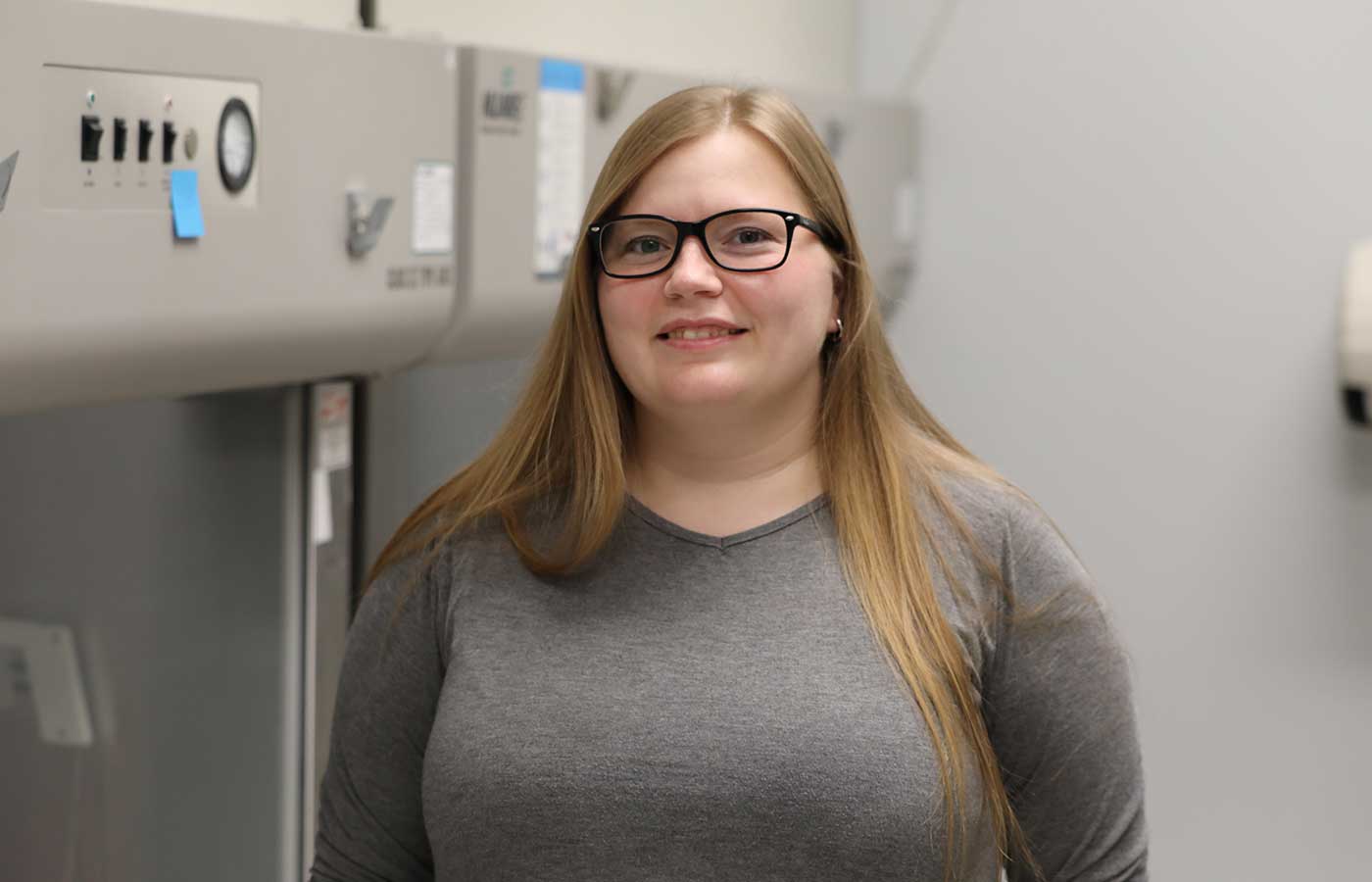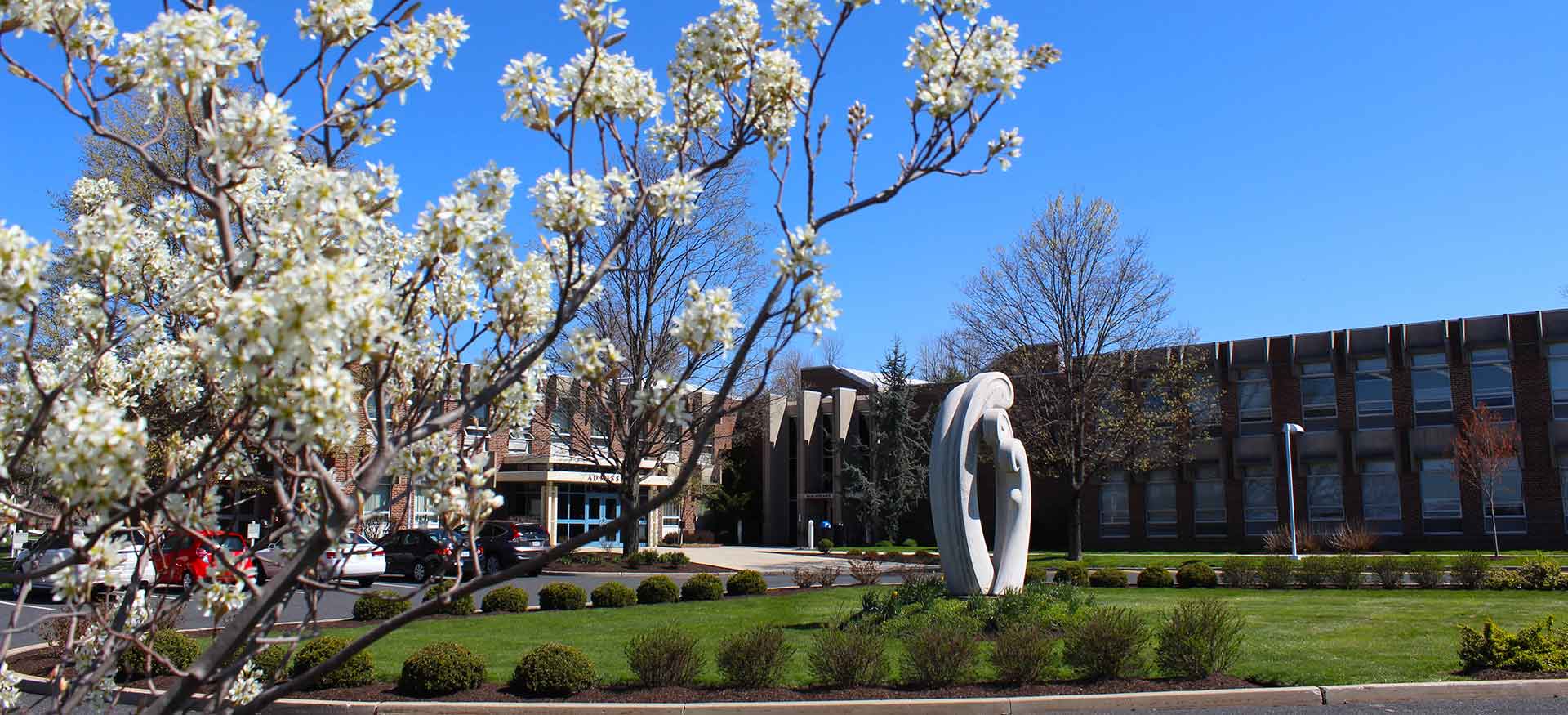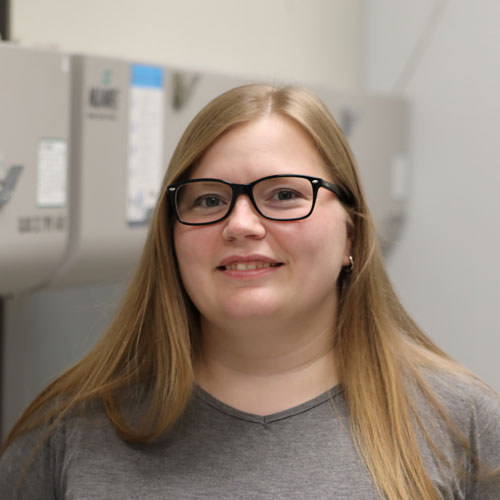Vaccines versus Antivirals: DeSales’ New Coronavirus Expert Makes Case for Both in Fight Against COVID-19

Across the globe, scientists have been scrambling to find ways to slow the spread of COVID-19. Inside the Hurd Science Center, Dr. Dia Beachboard—DeSales’ newest assistant professor of biology—is doing the same.
Beachboard specializes in coronaviruses, which combine her interests of virology and emerging pathogens.
“Viruses are, in my opinion, the coolest things on the planet,” she says. “They are these non-living entities that enter our bodies and just do the most miraculous things. They completely take over our cells for their own benefit.”
From the moment Beachboard took a virology class as an undergrad, she knew that studying viruses would be her life’s work. What she didn’t realize—just years later, COVID-19 would change the world as we know it.
“In a lot of ways, this is your science dream that you never imagine is going to happen,” she says. “It’s really exciting but it’s terrifying because it is just running rampant through the population. This has all been theoretical for so long; the worst-case scenario is what we are living right now.”
As a graduate student at Vanderbilt University, Beachboard studied how coronaviruses manipulate host cells to form virus replication factories. As she explains, coronaviruses are all different, but they share one universal theme—making large proteins and then breaking them down.
Beachboard’s research focuses on one protein in particular—a protease that’s required for viral replication and serves to break down one large protein into 16 individual, mature proteins. That process, she says, is what makes viruses, like COVID-19, such good targets for antivirals.
“The way we’ve gotten around not having vaccines for things like HIV is doing these antiviral cocktails where we target multiple aspects of the virus with small molecules,” she says. “It doesn’t cure the disease, but it does knock it down a few pegs in strength and overall ability to mutate.”
Beachboard and a fellow Vanderbilt alum, Christopher Stobart, began their research in grad school and recently published a review article in the Journal of General Virology that examines the effects of such antiviral therapeutics.
The two argue that vaccines can be an effective tool, but if a large percentage of the population opts out of getting vaccinated, the pandemic will only be prolonged. They say small molecules should continue to be developed because molecules that target multiple aspects of a virus can decrease a virus’ likelihood of mutating, thereby slowing its spread.
Beachboard discusses her research in class, and students in her research lab will work with a coronavirus found in mice that can model highly pathogenic viruses. She says her ability to conduct virus research was one of the biggest draws in coming to DeSales. Another bonus—getting to know her students.
“I wanted to come to a smaller liberal arts college because that is not an experience that I had as an undergraduate. A lot of my intro classes had 300 students. I didn’t get those interactions with the faculty. I decided I wanted to teach where I can get to know my students and interact with them.”
While no one knows just how long this pandemic will last, Beachboard says one thing is for certain—the world can expect to see more of these coronaviruses in the future. The biggest question is whether the next one will be like the first SARS outbreak, which didn’t spread until people were symptomatic, or COVID-19.
“Everybody wanted to say this is going to be just like SARS-CoV 1, and then it went and proved us wrong. That’s the problem with viruses—any time you try to make a rule, they will find a way to break it.”






